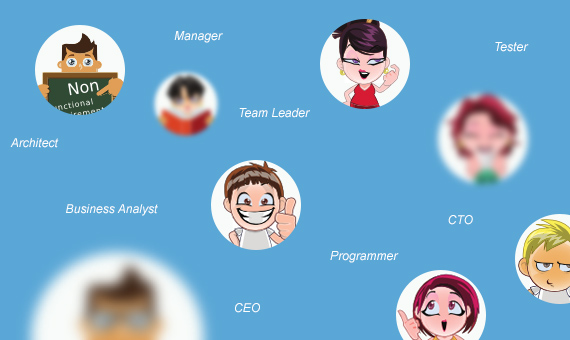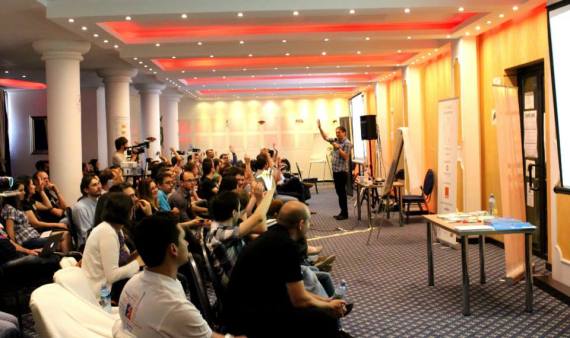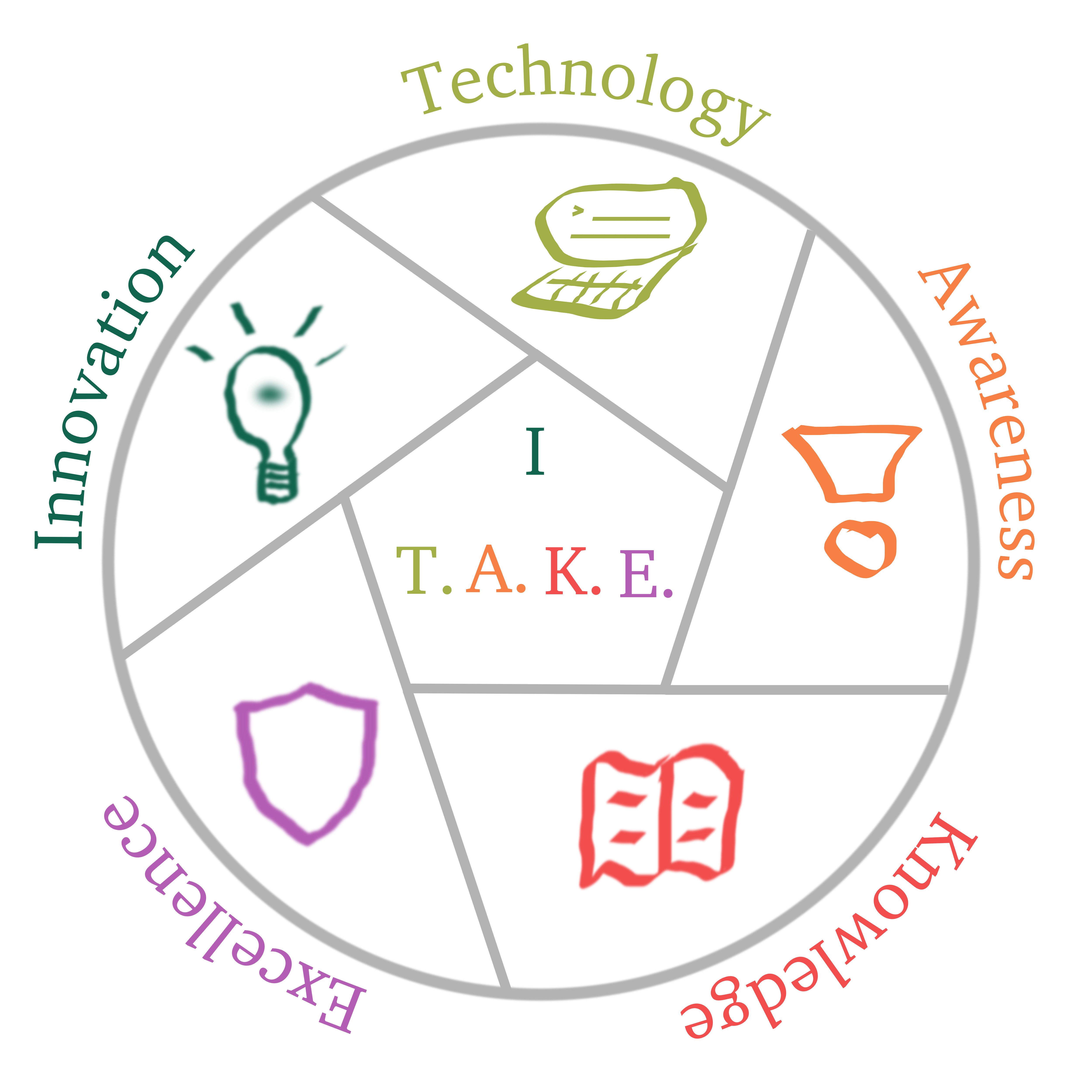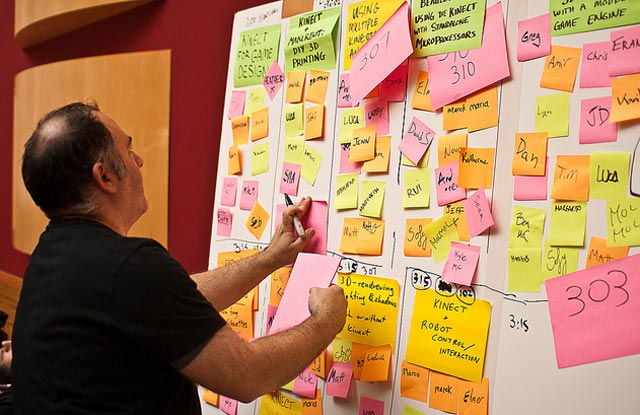Get inspired: 5 TED talks to start with

We’ve just opened the Call for Speakers for I T.A.K.E Unconference 2017. While preparing for next edition, we debated (again 🙂 ) what makes a talk memorable and thought-provoking.
In this context, here are 5 TED talks we’d like to share for your inspiration.
#1. Carol Dweck: The power of believing that you can improve
Carol Dweck researches “growth mindset” — the idea that we can grow our brain’s capacity to learn and to solve problems. In this talk, she describes two ways to think about a problem that’s slightly too hard for you to solve. Are you not smart enough to solve it … or have you just not solved it yet? A great introduction to this influential field.
#2 Elon Musk – The Mind Behind Tesla, SpaceX and SolarCity
Entrepreneur Elon Musk is a man with many plans. The founder of PayPal, Tesla Motors and SpaceX sits down with TED curator Chris Anderson to share details about his visionary projects, which include a mass-marketed electric car, a solar energy leasing company and a fully reusable rocket.
#3. Linus Torvalds – The mind behind Linux
Linus Torvalds transformed technology twice — first with the Linux kernel, which helps power the Internet, and again with Git, the source code management system used by developers worldwide. In a rare interview with TED Curator Chris Anderson, Torvalds discusses with remarkable openness the personality traits that prompted his unique philosophy of work, engineering and life. “I am not a visionary, I’m an engineer,” Torvalds says. “I’m perfectly happy with all the people who are walking around and just staring at the clouds … but I’m looking at the ground, and I want to fix the pothole that’s right in front of me before I fall in.”
#4. Kevin Kelly – How technology evolves?
Tech enthusiast Kevin Kelly asks “What does technology want?” and discovers that its movement toward ubiquity and complexity is much like the evolution of life.
#5. Julian Treasure – How to speak so that people want to listen
Have you ever felt like you’re talking, but nobody is listening? Here’s Julian Treasure to help you fix that. As the sound expert demonstrates some useful vocal exercises and shares tips on how to speak with empathy, he offers his vision for a sonorous world of listening and understanding.
Ready to inspire and challenge yourself the software minds?
Apply to Call for Speakers for I T.A.K.E Unconference 2017!

9 questions about I T.A.K.E Unconference
- Top-notch international speakers, with several years of experience in the tech field
- Qualitative content and the latest technologies
- An innovative and complex program format, through which the participants can pursue their own learning objectives, find value and experiment with all these concepts right during the event.
I am excited to share a few thoughts about writing software for abstract domains, such as the humanities and the liberal arts, at the I T.A.K.E. Unconference. My formal background in computer science and filmmaking informs how I make qualitative choices in the quantitative domain of software. I’ll share historical experiences from tooling to implementation, and discuss how this approach can even benefit conventional problem sets in commercial applications.
“Preparing detailed examples to show various scenarios of how the system will be used can have a huge impact on the testability of the system especially when it is the development teams job to automate the execution of those examples. All of a sudden, it becomes in developers best interests to make the system testable! And therefore the system becomes more easily tested.”
There is a huge competition in the software development market for the best job, fancy technologies, big money. Trying to outcompete others with technical skills is doomed to fail because surprisingly, most of our success is not due to technical abilities. I will share practical tricks that will accelerate and significantly improve your engineering career.
What is computer science? How do we measure if a programming teaching method is better than another? I’ll explain how we can organize research into computer science and what impact have educational programming programs?
- Create a product from scratch to Product Development Track through practices of Software Craftsmanship applied live and without the pressure of the office.
- The opportunity to create the Agenda within the technical Open Space. Each participant can become a speaker, share knowledge and experience on the subjects that are super passionate.
- Kata Lounge – participants may write code at any time during the event, solving a problem (called kata). Then get feedback from participants and speakers.
- Programming contest- we create for this challenge a set of problems to solve during the event and you can earn cutting-edge gadgets.
- Code dinner with a stranger takes place on the first evening of the event. There are created ad-hoc groups of participants and speakers (generally a speaker on a certain theme “gathers” a group of participants for dinner who want to debate and more on the topic addressed by speakers)

Personas
Trouble deciding which sessions to attend? The program is created to target the main roles in technical companies.
When the program is done you’ll see the recommended sessions for each persona.
 |
Albert the Architect
|
 |
Carol the CTO
|
 |
Chris the Craftsman Programmer
|
 |
Cristina the Technical Co-Founder
|
 |
Diana the DevOps
|
 |
Megan the Manager
|
 |
Tamara the Team Leader
|
 |
Tudor the Technical Consultant
|

3 easy steps to personalize your Agenda for I T.A.K.E. Unconference
As there are multiple types of activities happening in the same time in different rooms, design your own agenda up-front.
Whether you got your ticket or you are considering to, here’s how you can benefit the most from the 3rd edition of I T.A.K.E. Unconference:
Keynotes and sessions
- Select the sessions from the Schedule.
- (Optional) Check the persona for the selected session (when in doubt).
- Build your own agenda based on the sessions you want to attend.
In the afternoon enjoy the unconference flavor by attending the Open Space.
All-day Activities
Exercise your programming muscle all-day with the Kata Lounge & Product Development tracks, open for you to join whenever you choose.
Watch out for the Programming Contest, where you can win a drone or an iPad, if you compete before 29 May, 2 PM.
Evening Activities
What else is prepared for you? In the evenings, enjoy:
- Code with a Stranger – Have fun, drink a beer, and pair-program with a stranger what you have learnt during the first day or anything you want to practice, scheduled for the 1st evening.
- Networking Party* – Enjoy drinks and food – offered by Mozaic Works – for a chatting fine end of the day, scheduled for the 2nd evening.




